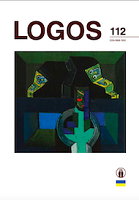Scholastinė logika Lietuvoje: eklektizmas ir santykis su Renesanso ir naujųjų amžių filosofija ir logika
Scholastic Logic in Lithuania: Eclecticism and Relation with Philosophy and Logic of Renaissance and New Ages
Author(s): Vytis ValatkaSubject(s): Logic, Philosophy of Middle Ages, Renaissance Philosophy
Published by: Visuomeninė organizacija »LOGOS«
Keywords: scholastic logic in Lithuania; eclecticism; philosophy and logic of Renaissance and New Ages;
Summary/Abstract: This text continues a cycle of articles devoted to general topics of scholastic logic in Lithuania. The first article of the cycle (Valatka 2020) investigated the beginning of the above mentioned logic as well as its method and argumentation technique. The second article (Valatka 2021) looked into structure, object and form of this logic. This article is devoted to one of the essential features of that logic, namely, to its eclectic nature. The author of the article focuses on the causes and content of this eclecticism. The article comes to conclusion that such an eclecticism was characteristic of all the disciplines of the Second Scholasticism, including logic, the inseparable part of which was scholastic logic in Lithuania. The main reasons for this eclecticism were the crisis of classical scholasticism and the philosophical, theological, and ideological front of the reformation/counter-reformation battle. However, the eclecticism of scholastic logic was of a rather limited, even isolationist nature. Namely, it did not go beyond the frames of scholastic knowledge – while combining and integrating separate views of various trends of classical scholasticism, this logic completely ignored the ideas and concepts of Renaissance and New Ages’ philosophy and logic.
Journal: LOGOS - A Journal of Religion, Philosophy, Comparative Cultural Studies and Art
- Issue Year: 2022
- Issue No: 112
- Page Range: 49-56
- Page Count: 8
- Language: Lithuanian

